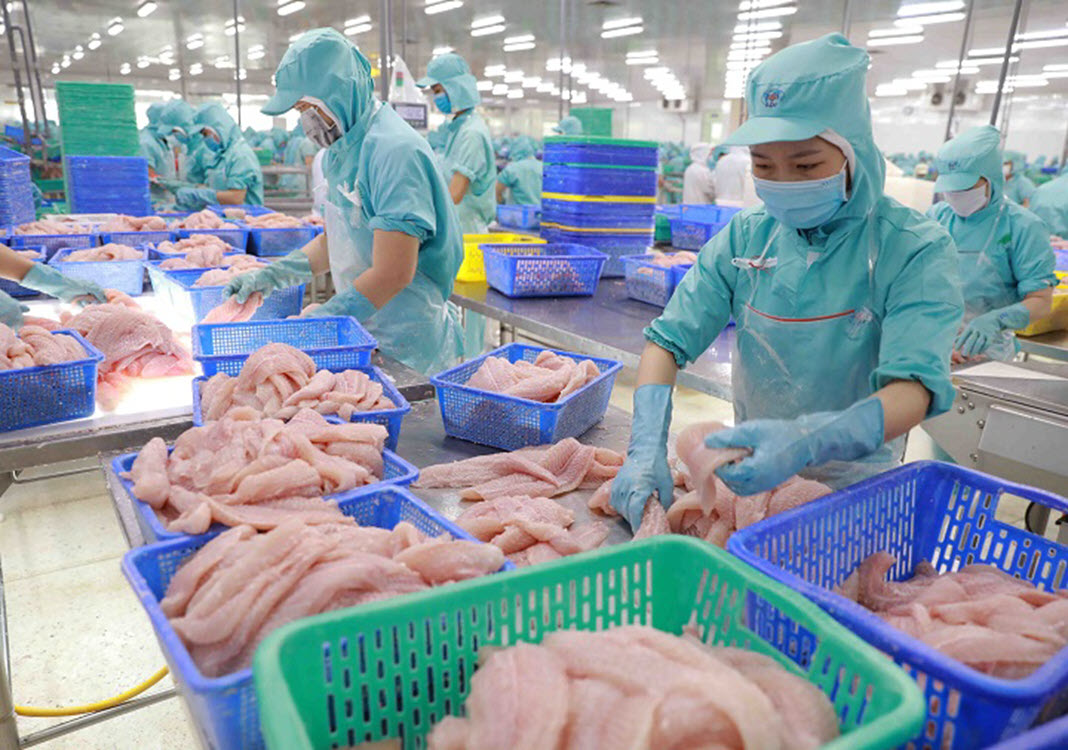CAN THO – Vietnam exported 129,000 tons of fish and fishery products worth some US$600 million last month, down over 34% in volume and over 27% in value against the same period last year, according to the General Department of Vietnam Customs.
Earlier, in August, the country’s fishery exports contracted some 30% in volume and around 26% in value year-on-year at 128,580 tons and more than US$595 million.
Accordingly, the local fishery sector recorded a fall in export revenue for two consecutive months as the latest wave of Covid-19 infections in southern Vietnam has hindered fishery processing and export.
Between January and September this year, Vietnam shipped around 1.4 million tons of fishery products worth more than US$6 billion, falling 0.71% in volume but rising 2.4% in value compared to last year’s figures.
The fishery sector will not be able to reach its export target set for this year if the latest outbreak continues to linger till the end of this month. However, if the Covid situation is brought under control, fishery exporters would have greater chance of increasing their market share in major markets in the final months of the year.
To restore the fishery sector and grasp export opportunities during the year-end period, To Tuong Lan, deputy secretary of the Vietnam Association of Seafood Exporters and Producers (VASEP), recently suggested some adjustments to regulations to fight Covid and revive the economy.
Specifically, those who have recovered from Covid and have got vaccinated can participate in the process of restarting production. More favorable conditions should be implemented to facilitate commuting activities among localities where processing plants and input material zones are located.
Besides, she suggested replacing the stay-at-work mode with more effective measures that could reduce costs and ensure safety for workers.
Further, factories should be allowed to operate at full capacity if over 60% of their employees are fully vaccinated; plus, they have been able to cope with the pandemic over the past three months and have complied with anti-Covid measures as required by the Health Ministry, the VASEP representative added.









